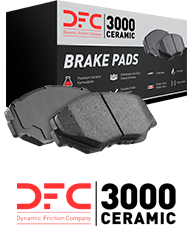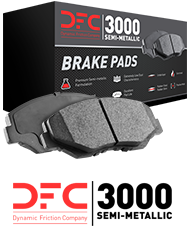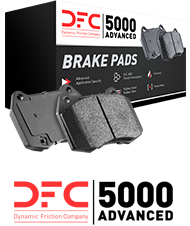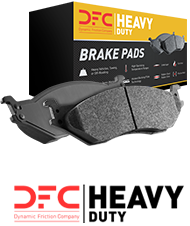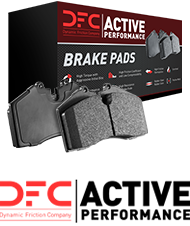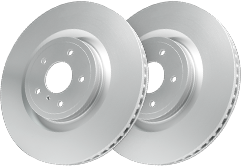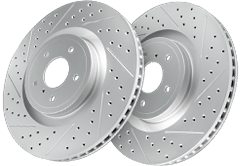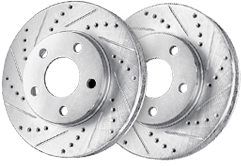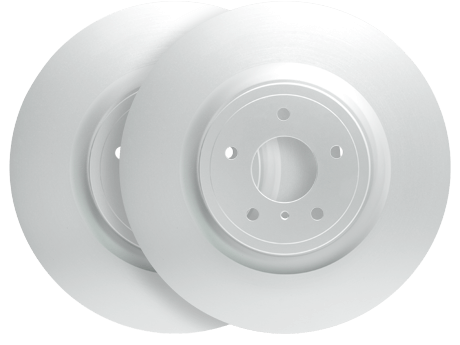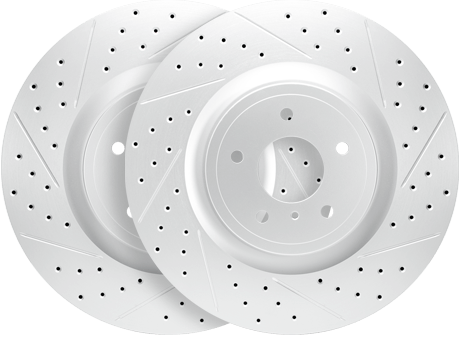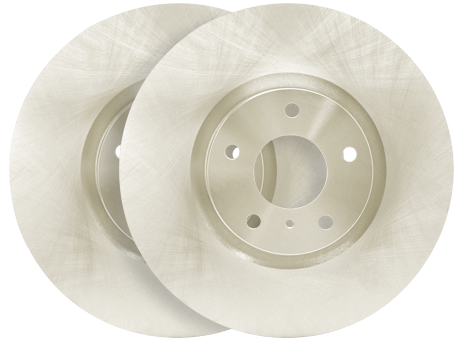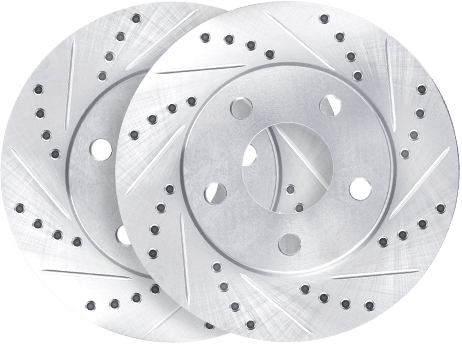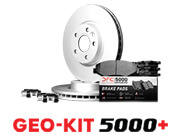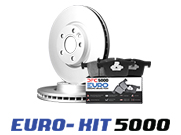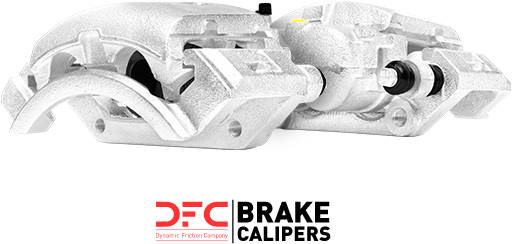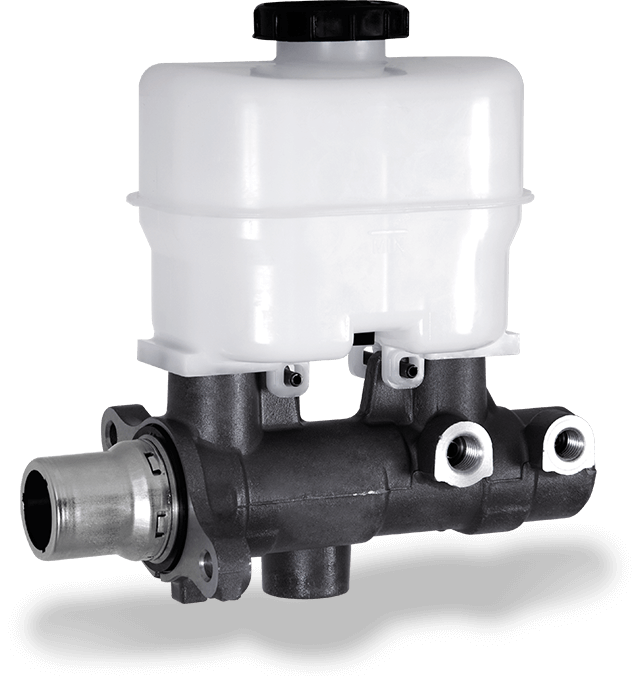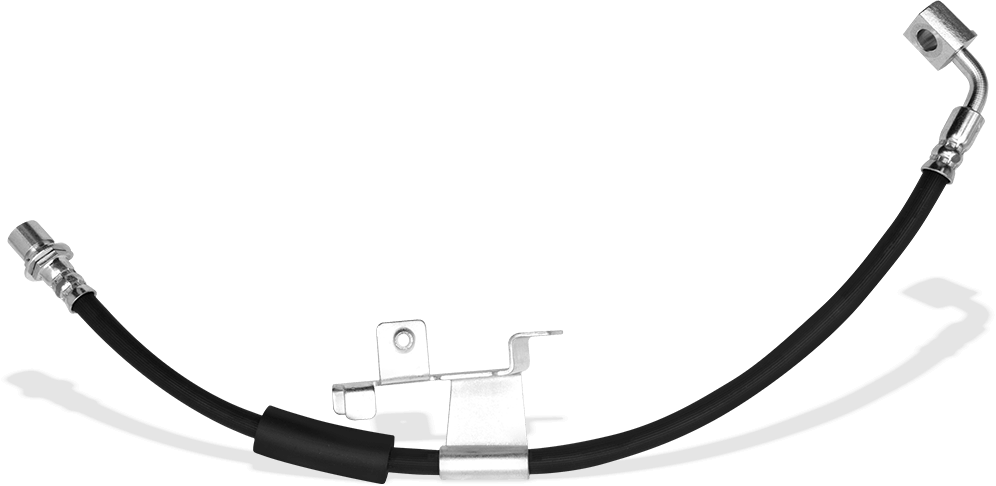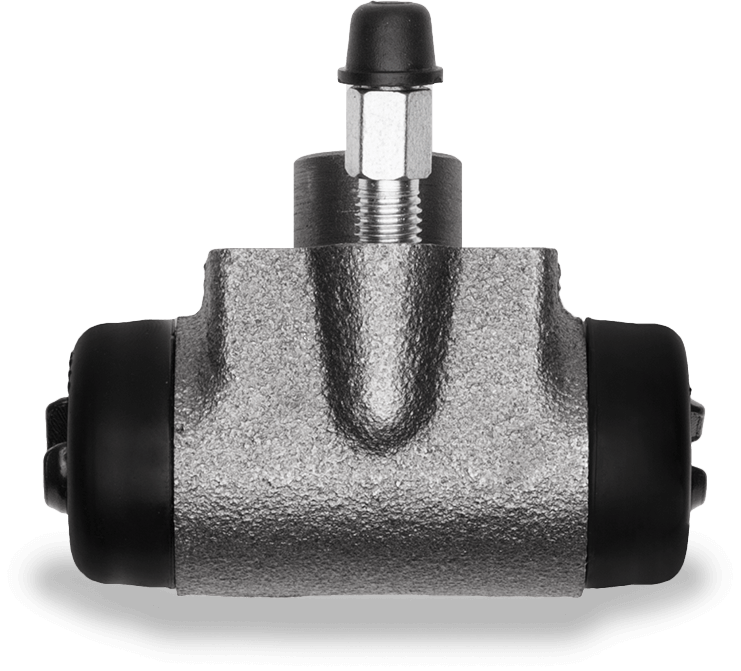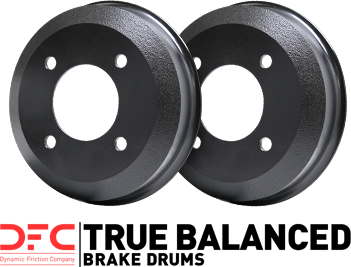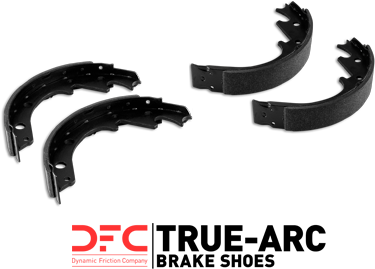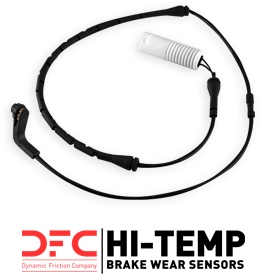Interested in finding the ideal rotor variety for your Toyota Corolla? Explore this comprehensive overview that delves into solid, drilled, slotted, and the combination of drilled & slotted rotors. Discover which one aligns perfectly with your vehicular demands!
Key Takeaways
- Various types of brake rotors for the Toyota Corolla include solid, drilled, slotted, and drilled & slotted rotors, each catering to different driving conditions and requirements.
- Solid rotors are cost-effective and durable, ideal for daily driving, while drilled and slotted rotors offer enhanced performance and cooling, suitable for high-performance and track driving.
- The cost of brake rotors varies by type, with solid rotors being the most affordable, and drilled & slotted rotors being the most expensive, reflecting their advanced features and performance benefits.
Types of Brake Rotors for Toyota Corolla
Several choices are available when selecting brake rotors for a Toyota Corolla, each tailored to suit different driving demands and scenarios. The primary categories consist of:
- Solid (also known as blank or smooth) rotors
- Drilled rotors
- Slotted rotors
- A combination of drilled and slotted rotors
Grasping the specific advantages and characteristics of these rotor types can assist in making an informed decision on which is most suitable for your vehicle.
The distinct benefits presented by each type of brake rotor vary based upon their designed application. We will explore these variations in detail, beginning with solid brake rotors.
Solid Rotors
Blank or smooth rotors, also known as solid rotors, provide a practical solution that combines affordability and resilience. They are highly sought after for everyday vehicular use due to their:
- Resilient and straightforward design that minimizes the risk of cracking
- Stable braking performance at elevated speeds
- Suitability for regular commuting where durability and dependability are paramount
Solid rotators deliver a high degree of contact area which promotes uniform braking performance while efficiently managing the heat produced by intense braking activities. While they may lack the sophisticated cooling capabilities found in drilled or slotted alternatives, their robustness coupled with appropriate metallurgical composition renders them an outstanding selection for those prioritizing cost efficiency alongside consistent and reliable brake performance.
Drilled Rotors
Drilled rotors feature holes drilled into them to allow for better heat dissipation, making them ideal for high-temperature conditions. These rotors excel in wet conditions by providing a place for water to escape, which improves the ‘wet bite’ and overall braking performance. If you often drive in rainy or humid environments, drilled rotors can be a great choice.
However, drilled rotors are not just about wet-weather performance. They are also suitable for:
- high-performance driving where heat dissipation is crucial to prevent brake fade
- those who enjoy spirited driving
- those who live in areas with frequent wet weather
This makes them an excellent option for those who fall into any of these categories.
Slotted Rotors
Slotted rotors confer several advantages, including:
- Improved braking performance due to their capacity to dissipate gases, dust, and debris effectively.
- Diminished brake fade thanks to enhanced bite and inhibition of gas accumulation between the rotor and the pad.
- Suitability for demanding tasks that require continual application of strong braking power.
Slotted rotors excel in maintaining grip while discharging debris efficiently. This makes them an optimal choice for those who partake in aggressive driving techniques. For individuals often navigating mountainous terrain or involved with towing activities, these rotors deliver superior performance enhancements needed under such conditions.
Drilled & Slotted Rotors
Slotted and drilled rotors combine the benefits of both designs, offering better braking performance through efficient heat management and improved pad contact. The holes help reduce heat build-up, while the slots keep the surface clean by removing dust and debris. This makes these rotors suitable for high-performance use.
This rotor design performs well under demanding track conditions where the braking system faces extreme stress. By merging these features, slotted and drilled rotors provide reliable functionality for various driving scenarios, from everyday commuting to aggressive racetrack driving.
Pros and Cons of Each Rotor Type
Each brake rotor type has unique benefits and drawbacks suited to specific driving conditions. Solid rotors are economical and durable but may not handle high heat well. Drilled rotors improve heat dissipation and wet performance but can crack under severe stress. Slotted rotors enhance braking by reducing brake fade but can wear down pads faster. Drilled and slotted rotors combine these benefits, offering better heat management and performance, although they are more expensive and may have longevity issues.
Solid Rotors: Pros and Cons
Pros:
- Ideal balance between performance and cost-effectiveness
- Durable due to the absence of drill holes or slots, minimizing the potential for cracking
- Suitable for everyday use where consistency and minimal upkeep are valued
- Less noisy and generates fewer dust particles than other types of rotors
- Adequate performance for regular driving in stable weather conditions
Cons:
- Lack sophisticated cooling capabilities found in drilled or slotted rotors
- Perceived to perform less effectively in high-stress conditions compared to drilled or slotted rotors
Drilled Rotors: Pros and Cons
Pros:
- Enhanced performance in wet conditions
- Improved dissipation of heat, making them ideal for high-temperature conditions
- Suitable for high-performance driving and spirited driving
- Effective in areas with frequent wet weather
Cons:
- Propensity to crack under rigorous stress experienced during racing scenarios
- Uneven wear over time, leading to the formation of concentric grooves
- Less optimal for race track durability due to diminished resilience at elevated temperatures
Slotted Rotors: Pros and Cons
Pros:
- Strip away the glaze from overheated brake pads, revealing new material for effective braking
- Beneficial for high-performance driving where sustained braking power is essential
- Diminish brake fade and enhance traction
- Suitable for performance-focused and heavy-duty use cases
Cons:
- Accelerate the wear of brake pads more rapidly than other types of rotors
- Grumbling sound noticed when slowing down from elevated speeds, which some motorists might consider bothersome
Drilled & Slotted Rotors: Pros and Cons
Pros:
- Combine the advantages of both drilled and slotted designs
- Ensure an equilibrium in performance and cooling efficiency
- Excel under damp conditions or when burdened with significant weight
- Suitable for high-performance use
Cons:
- Tendency to crack, rendering them less than ideal for intense racing scenarios
- Higher cost compared to other rotor types
For those who prioritize a robust brake system blending endurance with superior braking power, the investment in drilled and slotted rotors can be justified despite their increased price tag. They provide an all-encompassing approach for drivers aiming to enhance both the resilience and efficacy of their vehicle’s braking capabilities.
Best Rotor Types for Different Driving Habits
When choosing the appropriate front brake rotor, it’s vital to take into account your specific car make and model, as well as your regular driving patterns and conditions. Various rotors are designed to suit particular requirements and preferences of drivers. Hence selecting one that aligns perfectly with your habitual driving behavior is crucial.
For those who commute daily, have a passion for performance-driven vehicles or participate in track day events, grasping which type of rotor harmonizes with your drive style can greatly improve both the enjoyment and safety aspects of your drives.
Daily Driving
Solid rotors are frequently selected for everyday vehicle operation owing to their resilience and value. Offering quiet braking and steady performance, blank or smooth rotors meet the demands of typical driving conditions. For those who prioritize dependability and minimal upkeep in standard daily travel and commuting scenarios, these rotors are perfectly suited.
Choosing an appropriate rotor type is critical for achieving peak functionality and safety during regular use and commutes. Solid rotors provide a harmonious blend of cost efficiency with reliable performance, rendering them a superior selection for the majority of motorists.
Performance Driving
When engaging in high-performance driving, it is advisable to use drilled and slotted rotors because they offer improved performance through better cooling. These types of rotors integrate the advantages of both drilling and slotting, delivering a superior mix of cooling efficiency and performance that caters well to demanding driving situations.
For those with a penchant for spirited driving, slotted rotors are highly recommended as they excel at dissipating heat effectively which minimizes brake fade. This results in increased durability and more reliable stopping power for drivers who prioritize robust braking capabilities during their dynamic drives.
Track Driving
Solid rotors are the favored option for track enthusiasts because of their extended lifespan and minimal dust emission. When participating in endurance races, it is essential to have rotors that can handle sustained periods of intense use. Solid rotors fulfill this requirement by delivering maximum braking power and dependable performance.
Due to their robustness and reduced need for maintenance, solid rotors stand out as a prime selection for individuals who regularly engage in track days or participate in endurance motorsport events.
Cost of New Rotors for Toyota Corolla
New rotor prices for a Toyota Corolla can differ significantly, depending on their brand and design. You might find yourself spending between $50 to $250 for each rotor. This variance is tied to distinct characteristics and the quality of the rotors. Being knowledgeable about how much different kinds of rotors cost will assist you in making a well-informed choice regarding your replacement needs.
In subsequent parts, we’ll delineate the costs associated with various categories of rotors—solid, drilled, slotted, as well as combinations like drilled & slotted—to provide a detailed view on what expenditures you may encounter for these specific types.
Price Range for Solid Rotors
When in need of new brake discs for a Toyota Corolla, opting for solid rotors presents an economical solution. Prices for these replacement rotors usually fall between $30 and $80 each, with the majority being available within the narrower bracket of $40 to $60 per rotor. This price range makes them an accessible choice for those owning a Toyota Corolla.
Solid rotors stand out as a wise pick that balances affordability with dependable performance, especially suitable when working within a budget without compromising reliability.
Price Range for Drilled Rotors
Typically, the price of drilled rotors for a Toyota Corolla falls in the range of $50 to $80 per rotor. It’s not uncommon for these prices to go as high as $100 each. When purchasing drilled rotors, one might anticipate spending about $75 to $100 per unit. Premium offerings could reach up to approximately $150.
Variations in specific features and brand reputation can have a considerable impact on pricing. This makes drilled rotors more expensive compared to their solid counterparts.
Price Range for Slotted Rotors
The price range for slotted brake rotors designed for the Toyota Corolla falls between $60 and $125 per rotor. The investment in these rotors is justified by their superior durability and improved braking performance, which includes a reduction in brake fade, even though they come at a higher cost compared to solid rotors.
For those who demand better braking performance due to heavy-duty or high-performance needs, investing in high-performance brake rotors like the slotted variety within this specific price bracket would be an appropriate decision.
Price Range for Drilled & Slotted Rotors
The price range for drilled and slotted rotors designed for a Toyota Corolla can vary, starting from around $70 to upwards of $200 per rotor. This variation in cost is contingent upon the brand and quality you choose. Most mid-level alternatives are usually found within the $80 to $150 bracket.
When you invest in more expensive rotors, it’s often reflective of superior grade materials along with improved performance capabilities. For those prioritizing an optimal blend of durability and high-performance outcomes from their Toyota’s braking system, despite the steeper investment required, choosing drilled & slotted rotors could provide a complete solution.
Reputable Brands of Rotors
Choosing the optimal brake rotor for your Toyota Corolla is vital, and it’s important to opt for a brand with a solid reputation. DFC/Dynamic Friction stands out in the automotive industry as one of those esteemed names, celebrated for crafting superior quality brake rotors that ensure consistent reliability and extended performance life when braking.
The Dynamic Friction Company manufactures rotors engineered with several benefits.
- Minimizing noise during braking
- Improving overall vehicle performance
- Keeping rims cleaner
- Delivering smoother brakes
These advantages are complemented by their straightforward installation process, which appeals greatly to many owners of the Toyota Corolla, positioning these rotors as a preferred option.
Summary
To summarize, the process of choosing the appropriate brake rotors for your Toyota Corolla must take into account both the variety of rotor options available and how you plan to use your vehicle. For those who primarily engage in everyday driving, solid rotors present a budget-friendly and robust choice. If you’re engaged in performance driving that necessitates better heat dissipation and responsiveness during wet conditions, drilled rotors are advisable. On the other hand, slotted rotors are designed to boost braking performance while mitigating brake fade—making them an excellent fit for vehicles subjected to strenuous activities. Combining these advantages are drilled & sloted rotors which offer a comprehensive solution suitable for both high-performance road use and track applications.
When purchasing new brake rotors, be aware that prices can differ significantly depending on their type as well as brand considerations. Thus it is imperative to make an informed decision aligned with your specific requirements without exceeding financial constraints. When unsure about what product to select, relying on well-established brands such as DFC/Dynamic Friction Company may provide peace of mind thanks largely because they have built up a certain degree or rapport within the market due to producing consistently standard items terms reliability and quality investing right imparts safer more enjoyable drives time behind the wheel.
Frequently Asked Questions
What are the main types of brake rotors available for a Toyota Corolla?
Various brake rotor options for the Toyota Corolla, such as solid, drilled, slotted, or a hybrid of drilled and slotted rotors, offer distinctive advantages related to braking performance and the management of heat. Each design contributes differently to how effectively the brakes perform on your Toyota vehicle.
What are the pros and cons of solid rotors?
Before choosing solid rotors for your vehicle, take into account the balance between their cost-effectiveness and robustness versus their potentially lesser capability to handle high-heat conditions which may affect performance.
Are drilled rotors suitable for racing?
No, drilled rotors are not appropriate for racing due to their propensity to crack under the intense heat and extreme temperatures encountered in such conditions, although they are more apt for high-performance driving on regular roads.
What rotor type is best for daily driving?
For routine driving, blank or smooth rotors are ideal due to their suitability for standard vehicular operation.
Opting for solid rotors is a wise decision when it comes to everyday use. They not only offer long-lasting durability and cost efficiency, but also ensure quiet braking operations and steady performance.
How much do drilled & slotted rotors typically cost?
Depending on the brand and quality, drilled and slotted rotors for a Toyota Corolla Range in price from $70 to $200 for each rotor. Price fluctuations are possible.

 UNITED STATES
UNITED STATES